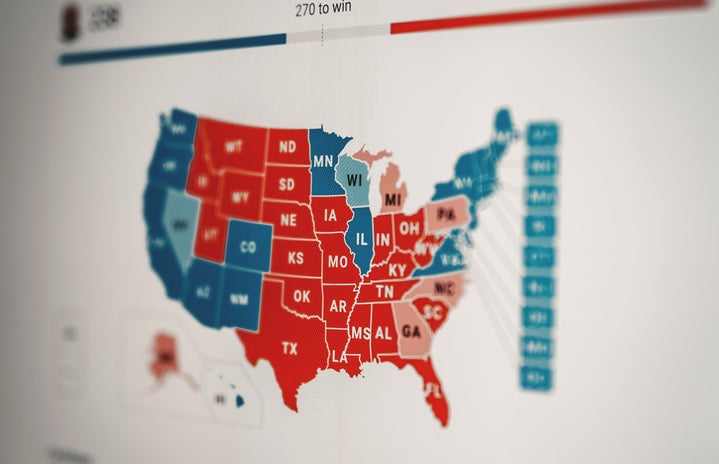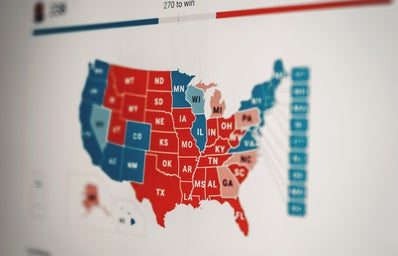To vote, or not to vote, that is the question:
Whether ‘tis nobler in the booths to suffer
The trials and torments of leaders unwanted,
Or to take arms against two antiquated creatures,
And by opposing, end them.
Such a Shakespearean query afflicts America’s Gen Z. Both Republicans and Democrats will feel the sting of a “plague on both [their] houses,” for today’s youth, more than ever, are resistant to vote.
During the 2020 election, a record-breaking turnout of youth voters passionately helped shift the election in President Joe Biden’s favour. A desire to oust Trump was felt fervently, and civic responsibility was upheld with ease.
Yet, such turnout of young voters appears fruitless in the 2024 election. Whilst many democratic youth, and democrats at large, have proved dissatisfied with President Biden’s performance, there has been an underlying sentiment that it is better to vote for “the lesser of two evils” than to not vote at all.
The latter, however, is now gaining more traction, and this chiefly boils down to the Israeli-Palestinian conflict. In a New York Times poll from Siena College, it was reported that 57% of students disapprove of Biden’s approach, and a majority believe Trump would handle the conflict better.
Whilst Gen Z’s anger and dissatisfaction over the handling of the conflict is warranted, to not vote as a consequence feels, to many onlookers, to be a big mistake.
Fortesa Latifa drew attention to the Republican Party’s strong pro-Israel stance, and argued “if voters spurn Biden for being pro-Israel, will they unintentionally hand the presidency to someone who may be less sympathetic to Palestinians?”
Latifa interviewed many Gen Z (non) voters, trying to pick their brains. Elias, a Palestinian American, recalls the moment he felt he could no longer vote for Biden, and thus, would no longer vote at all: when Biden cast doubt upon the death tolls reported by the Gaza Health Ministry, Elias felt he could not “cosign” such a “monstrous” declaration.
Others feel as though their vote is rendered irrelevant by the Electoral College system, a confusing and often overlooked feature in American presidential elections.
Yet it appears Democrats need the youth vote now more than ever. They stress the importance of keeping Trump out of office to inhibit the reversal of abortion rights and cease the implementation of Project 2025.
Project 2025 is, in short, a Republican initiative and playbook to mold the US federal government to support Donald Trump’s agenda. The plan seeks to slash the US Department of Justice, disband the FBI and Department of Homeland Security, dissolve climate change regulations (instead favoring fossil fuels), and eradicate the cabinet Departments of Education and Commerce. It will involve a massive job purge, replacing technical experts with Trump supporters. The project equally holds plans for abortion bans, and covets the installation of Christian nationalism in government and public life.
Terrifying and unconstitutional, Project 2025 is enacting Democrats to vote blue. Yet, the question — will it be enough? — eerily remains. Word of Project 2025 has not spread far, and even those that know of it appear somewhat unphased and unmoved by its existence.
Uncertainty characterizes the future for both the 2024 presidential election and America as a whole. Thus, with our country’s fate so precarious, I urge readers and Gen Z at large to overcome their feelings of dissatisfaction and recall their civil duty. Your vote matters and your vote is powerful. Though it may feel futile, and the candidates may feel unsatisfactory, to not vote would be to relinquish your constitutional rights and forfeit to the status quo. Do not fall into Hamlet’s suicidal query, and lose faith in democracy.


